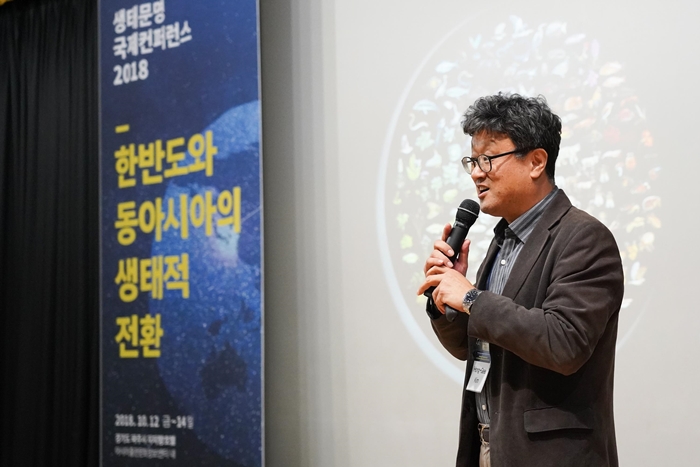- 2019-01-22
- ㆍ
- 1150
The Session Six hosted by Dong Joon Lee (representative of Incheon Culture Center) started with Keijiro Suga (Meiji University)’s presentation under the theme of Rewilding: From the Coast of Fukushima. Suga said that rewilding means restricting human intervention in order for the land returns to its original state. He showed a short documentary film (2016) which he wrote the script. The film was shot in the rural town of Minami Soma immediate north of the Fukushima Daiichi nuclear power plant to follow the ever-renewing force of the land. Suga shared his experience how nature protects itself and how wild animals live in the wilderness where human footsteps no longer exist in the region.
Yunjeong Han (The Center for Process Studies, Claremont) presented with the theme of The Role of the Environmental Humanities in Ecological Civilization. Han said that the humanities are dying with the majority of humans and proposed a new concept of environmental humanities for the attempt to change the viewpoint of humans and literature. Existing ecological criticism has reconstructed the entire history of literature from an ecological point of view and has played an important role in correcting an anthropocentric view by paying attention to human-nature relationship. However, in order to expand the genre and to overcome the anthropocentrism, it is necessary to expand to the environmental humanities. Han concluded her presentation with the emphasis on humanities role in solving environmental problems and overcoming ecological crises.

| 첨부파일 |
|



